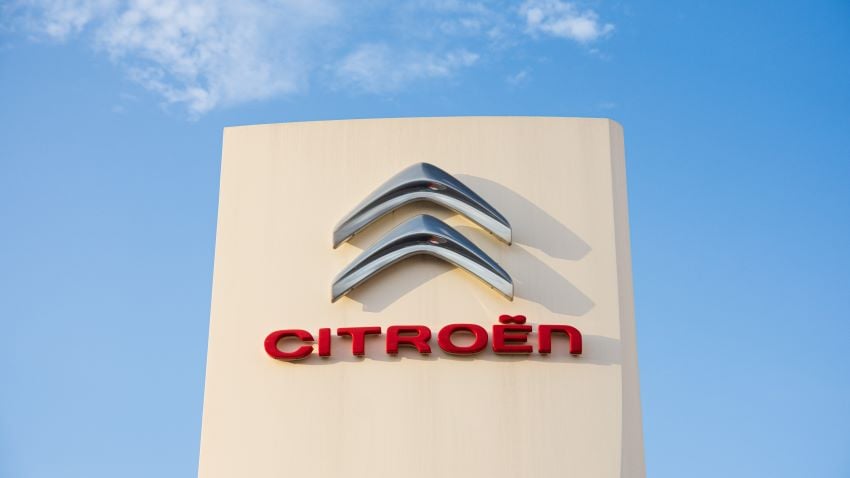This website uses cookies so that we can provide you with the best user experience possible. Cookie information is stored in your browser and performs functions such as recognising you when you return to our website and helping our team to understand which sections of the website you find most interesting and useful.
CICLE consumer data dashboard quickly spotted costly Citroen AdBlue defect

The CICLE project (Co-operation for Improving Consumer Law Enforcement) is a new pilot involving Euroconsumers members OCU and Altroconsumo.
It has tested out more effective ways of using the consumer complaints data that their members gather every day. The tracking dashboards pull in reports of complaints from consumers into one place, categorizing them by problem and sector.
This rich data gives a live picture of emerging consumer problems with companies or products, and generates alerts to authorities when they need to action. The tracking tool also feeds into the EU’s consumer law breaches mapping carried out by the Consumer Protection Cooperation Network to enhance European enforcement.
This fills a significant gap in market surveillance and will help speed up access to consumer justice when things go wrong.
The project enables better links and sharing between everyone involved in consumer protection from consumers, consumer organisations and national consumer protection authorities to the European level bodies.
The Citroen AdBlue case
Over July and September 2022, the CICLE tracker picked up a growing number of complaints from consumers in Italy and Spain who owned Citroën-branded cars registered after 2015. They were experiencing problems with a malfunction in the anti-pollution system in their cars.
Like many other diesel cars, the anti-pollution system needs to be topped up with AdBlue after a certain amount of mileage to keep emissions within allowed EU levels. If it’s not topped up, then the car won’t meet legal requirements and will be immobilized.
Consumers were noticing irregularities with the notifications. Warning lights and messages would warn that AdBlue levels in the tank were low, when they were not. This is all the more serious as, without the right level of AdBlue, cars are automatically immobilized and unable to be driven.
When they investigated further with Citroen, they were told there was a problem with the tank and the whole system needed to be replaced at a Citroen garage at a cost of around €800-1,200.
The number of similar failure reports from consumers about the same model of car strongly suggested that problems were due to a common design defect within the cars and not regular wear and tear or consumer use.
Citroen arranged recalls for some of the batches of cars affected but not all – leaving many consumers facing a hefty bill to fix a problem that is not their fault.
How CICLE can help Citroen owners
The CICLE dashboard enabled the consumer organizations involved to quickly spot the problems owners were having and to get details of the issue and the models, make, date of manufacture. The system could also collate the response that consumers had had from Citroen and the prices they were charged or quoted for a repair.
Once the infringement was detected, the legal teams at OCU and Altroconsumo began their analysis and exchanged information within the wider consumer protection network so that consumer organizations and consumer authorities are alert to potential problems in their markets.
By November 2022, Altroconsumo and OCU had raised an alert with their respective national authorities, the Italian AGCM and Spanish CNMC). On January 11th 2023 the Italian Competition Authority opened a proceeding against Citroën Automobiles SA and Groupe PSA Italia S.p.A. for misleading and aggressive commercial practices.
Through its online platform, Altroconsumo is continuing to collect complaints by affected consumers as evidence to support the Competition authority work. Publicity about the case will then lead to more consumers coming forward who will be potentially eligible for compensation, refund or a remedy if the infringement is confirmed.
In December 2022, Altroconsumo and OCU also raised an alert with the European Consumer Protection Network which was directed at all EU countries.
CICLE’s Citroen alert shows the power of consumer data
All of this happened at a fast pace, showing that projects like CICLE can link together the experiences of consumers out in the market to shine a spotlight on harmful practices and trigger action to help enforce consumer law across borders.

This project was funded by the European Union’s Consumer Programme (2014-2020) Views and opinions expressed are however those of the author(s) only and do not necessarily reflect those of the European Union or EISMEA. Neither the European Union nor the granting authority can be held responsible for them.


